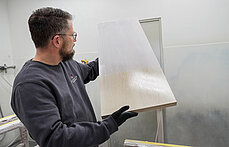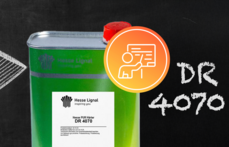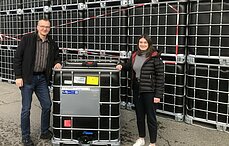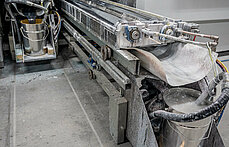
Wiping stain TD 4220-(colour)
Fast drying solvent-based pore stain used for colour-contrasting emphasis of the pores for woods with coarse pores.
Enquire articlePage content
- for coloured emphasis of the pores
- Fast-drying
- universally usable
Processing
Areas of application
For use with subsequent recoating in industry and handcrafting of doors, home furnishings and kitchen furniture.
Technical information
Certificates
Technical Specifications
| Appearance | not relevant |
|---|---|
| Number of layers (max) | 1 |
| Quantity per layers (min) | 40 g/m² |
| Quantity per layers (max) | 80 g/m² |
| Total quantity applied | 80 g/m² |
Processing Instructions
| Drying | 2 h / 20 °C |
|---|---|
| Surface sanding (grain size) | |
| Intermediate sanding (grain size) | |
| Yield per pass | 15 - 46 m²/l |
| Processing information | Prepare the substrate in the desired manner with at least 2 coats of CN or PU coloured or multicoat lacquers or basecoats and allow the last coat to dry for a minimum of 16 h. No sanding required. Apply the wiping stain using a spray gun, brush or balled up cloth. Carefully rub down the coating on the wood with steel wool or sanding fleece after the wiping stain has dried, so that the product only remains in the pores. Remove any remaining haze by slight sanding with 400 grit. Then finish with a top coat of a lacquer from the same system. |
| Special notes | All stains from the same range can be mixed with one another. Can be tinted with colour concentrates in the range: TK 71xx-0001 |
Our technical information is continually adapted to keep up to date with the latest technology and statutory regulations. The latest version is always available online at www.hesse-lignal.de or talk to your local account manager. This information is for advice and is based on the best knowledge available and careful research in line with the current state of the art. This information cannot be held as legally binding. We also refer you to our terms and conditions of business. Safety data sheet is provided in accordance with EC regulation no. 1907/2006.








